Laura Kraut’s four-decade career includes three appearances on both the U.S. Olympic team and the World Equestrian Games team, has competed at countless World Cup Finals, has ridden in numerous Nations Cups and has more than 100 grands prix wins.
Laura grew up in Atlanta, Georgia, where she and her sister, Mary Elizabeth, began riding at an early age under the tutelage of their mother, Carol Kent. Laura and Mary Elizabeth’s skills eventually caught the attention of two local trainers who invited the girls to work for them. For the next six years, the sisters worked around the barn and helped to start young horses and ponies. During this experience, Mary Elizabeth fell in love with the horse-care side of the business. To this day, she manages the care of all of Laura’s mounts, and Laura attributes the longevity of their careers to her.
As Mary Elizabeth was falling in love with the horse-care side of things, Laura was pouring her heart into training. In 1991, she got the ride on her first big-time grand prix partner, Simba Run. After a year together, Laura and Simba earned a spot as alternates on the 1992 U.S. Olympic team in Barcelona. Simba helped draw national attention and sponsorship to Laura’s career, opening the door to a string of partnerships with other talented horses, including Liberty, her partner at the 2000 Sydney Olympics, Anthem, Miss Independent (who was her partner for the 2006 WEG, where the team won a silver medal) and Cedric—perhaps her most famous partner.
When Cedric was only 10, he and Laura wowed the world by finishing the 2008 U.S. Olympic selection trials with the best overall score—and then went on to win the team gold medal in Beijing. Most recently, Laura won a team gold medal at the 2018 World Equestrian Games with Zeremonie.
Based in Florida for half the year and Great Britain for the other, Laura and her longtime partner, the legendary British show jumper Nick Skelton, run a successful training and teaching business.
I talked to Laura at the Washington International Horse Show in late October. Laura went on to clinch the flagship event at Washington—the Longines FEI Jumping World Cup™ Washington, a qualifier for World Cup Final. With this win, Laura racked up valuable points to qualify for the Final, which will take place in Las Vegas in April. During our conversation, Laura talked about how she gained experience in the sport and how those experiences shaped her into the rider she is today, the qualities she looks for in a show jumper (and some of her favorite horses), what she thinks makes a good horseman and more.
You can listen to the full interview wherever you get your podcasts, but in the meantime, here is a snippet of our conversation.
Growing up, you rode a lot of young and difficult horses. How do you think that shaped you as a rider?
We were just fortunate enough to get to ride so many different kinds. So whether they were spooky, wild, fresh, too quiet, stoppers or perfect—we just got to ride all kinds and it was never a question of “I can’t do this” it was, “How am I going to accomplish this?”
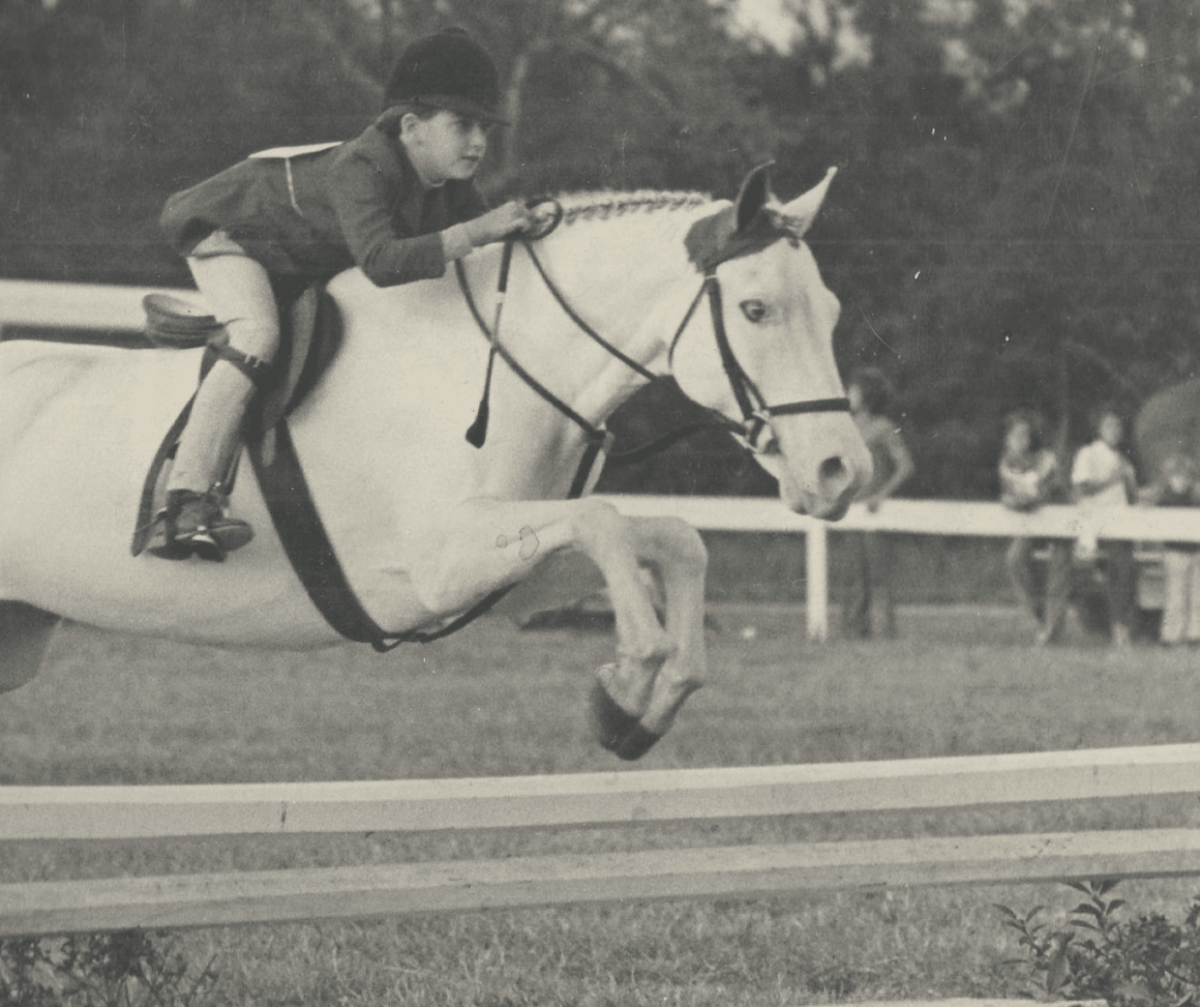
When you’re young, I think that goes across the board for anything. You don’t realize your limitations so you just try to figure it out. I think that’s what set the tone for me for riding is that I didn’t have fear. All I was concerned with was getting the results—making the horse understand what I wanted or figuring out how to sit quietly and not upset the horse. I started skiing late in life and I was terrible because I knew all the things that could go wrong. When you’re young, you just don’t think about that. So, I think in that way I was very fortunate.
Who are some of your favorite horses?
I’ve been very fortunate to have a lot of really good horses. I had a few very good hunters. I had a Junior hunter named Winning Hand who was very influential in my career in that he was a really, really hot Thoroughbred. I had to learn how to not move and try to get everything done without doing anything which has helped me in my career later on for being able to ride the horses that were more sensitive.
Then I had Simba Run who also was a Thoroughbred. He was the one who got me on the international scene. I was a reserve for the Olympic Games in Barcelona with him. I did my first Nations Cups with him in Rotterdam and Italy. He was the one that made me think that this is the direction that I really want to go. I was far more involved with hunters at that stage. At that point the jumpers hadn’t take on the big growth that it has now. He got me thinking in the other direction.
The next one was Liberty. She was my horse for the Sydney Olympics in 2000. She was the first horse I ever syndicated. That was a stepping stone in my career because I learned I could put a group of people together to buy a horse because horses are expensive. This was my opportunity to buy a little bit better horse and develop him and get him to a level. Katie [Prudent] came in at that stage and really helped me with that.
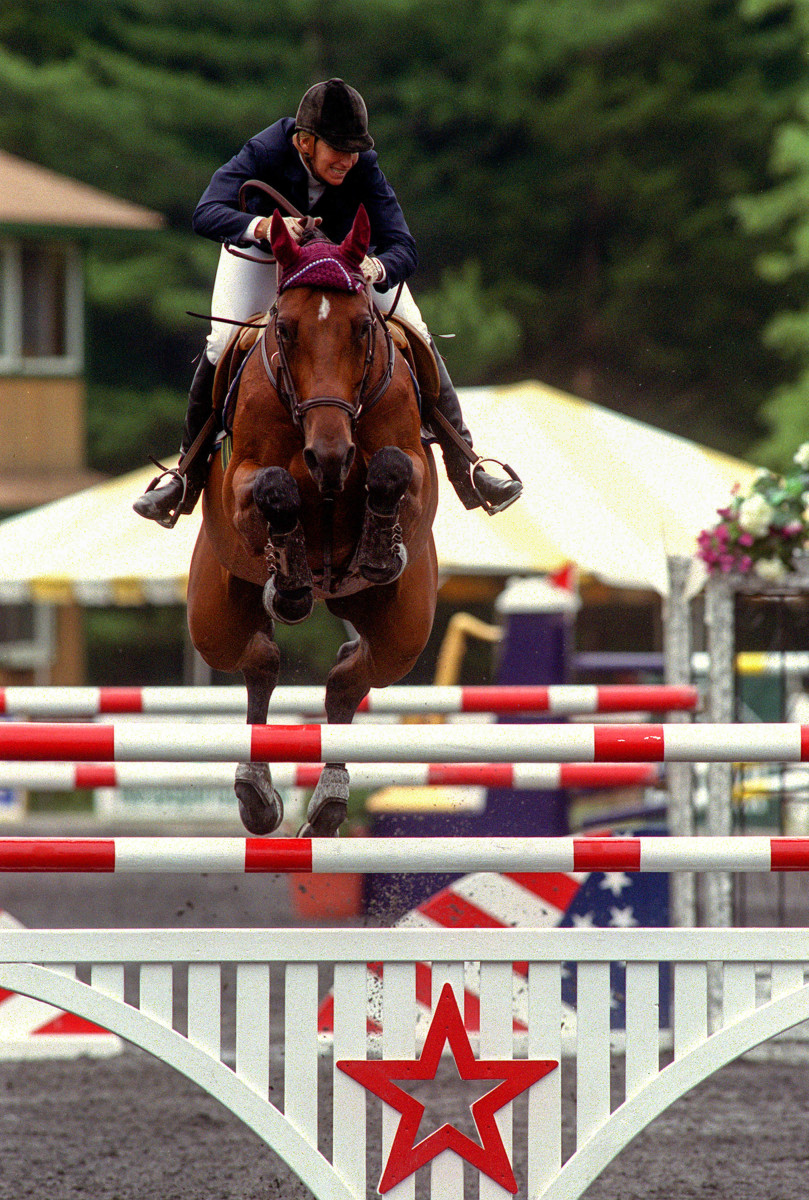
Anthem was the next one. Again, he was a syndicate horse. He was one of the winningest horses I ever had. He just was an incredible horse. I jumped him for 10 years at an international level. He did everything. He won Rotterdam, he won some huge grands prix. I think he won the grand prix in Madrid twice, he won in Rome, he won everywhere. He was great.

And then there’s the obvious, which is Cedric. Cedric was a culmination of all of them because he was hot as a firecracker and he had all kinds of funny quirks. He was tiny and he was actually everything that he shouldn’t have been. He was able to do everything that you would’ve never expected from him. I certainly didn’t buy him thinking that he was going to be an Olympic gold medalist. I bought him thinking he was a cute a horse that I could maybe train up and turn around and sell. He taught me a lot. He taught me a lot about perseverance because he was hard. I fell off him a lot. You would think you had him all organized and then he’d have to throw a curve ball at you and then do something so then you felt like, Oh god, I’m never going to get this right. But he had this miraculous ability to know that when it was really, really important, he never did anything wrong.
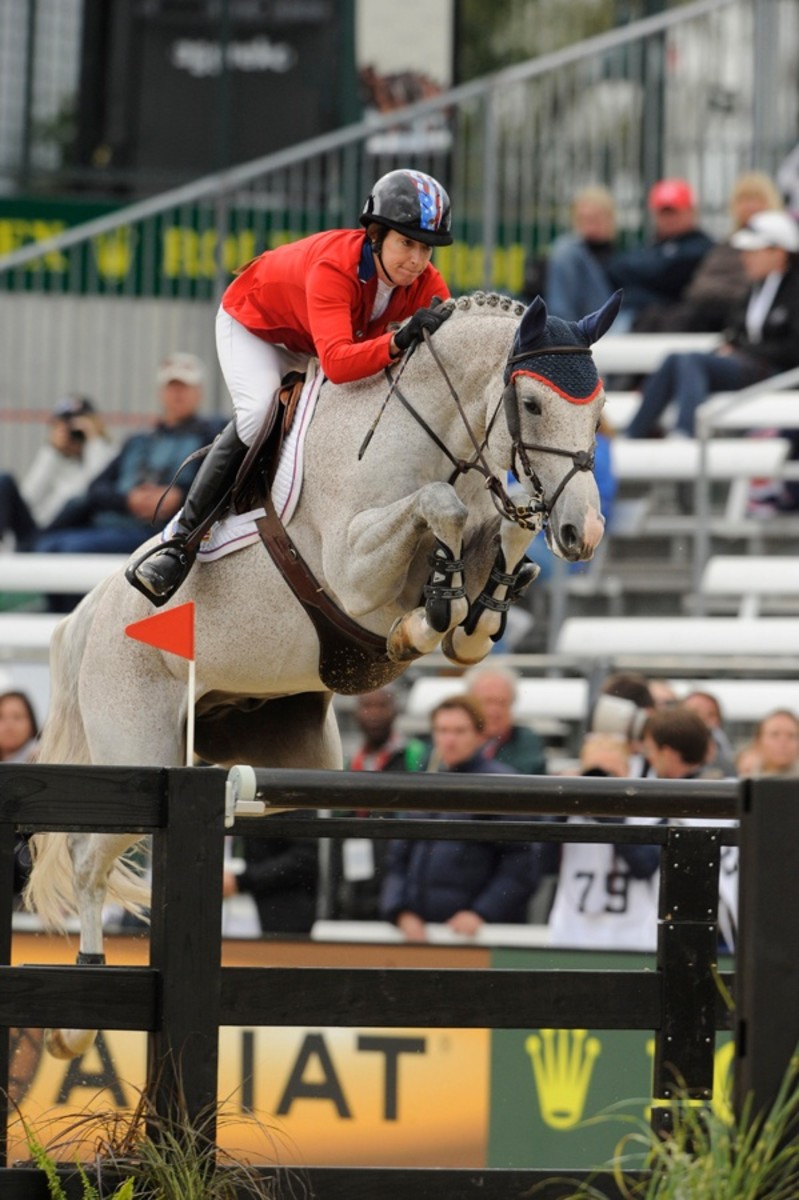
Since Cedric, I’ve had Zeremonie, who we bought as a 5-year-old. I was the first one to canter a fence on her. She was wildly green and unbroke. I brought her from her first show, her first everything, to winning a gold medal at the WEG last year. She’s an incredible horse. She’s very spicy, but in a different way than Cedric because he was always spooky and afraid. She’s not. She’s just full of energy and she’s a real madam and she thinks she knows everything. She knows a lot, so I let roll with that. She’s an incredible mare. I love her.

I also have Confu. He’s just now 12. I’ve had him for 3 years. He’s done some good things. He had the unfortunate position of following Cedric, so he had some big boots to fill but he’s wonderful. Hopefully the list will go on.
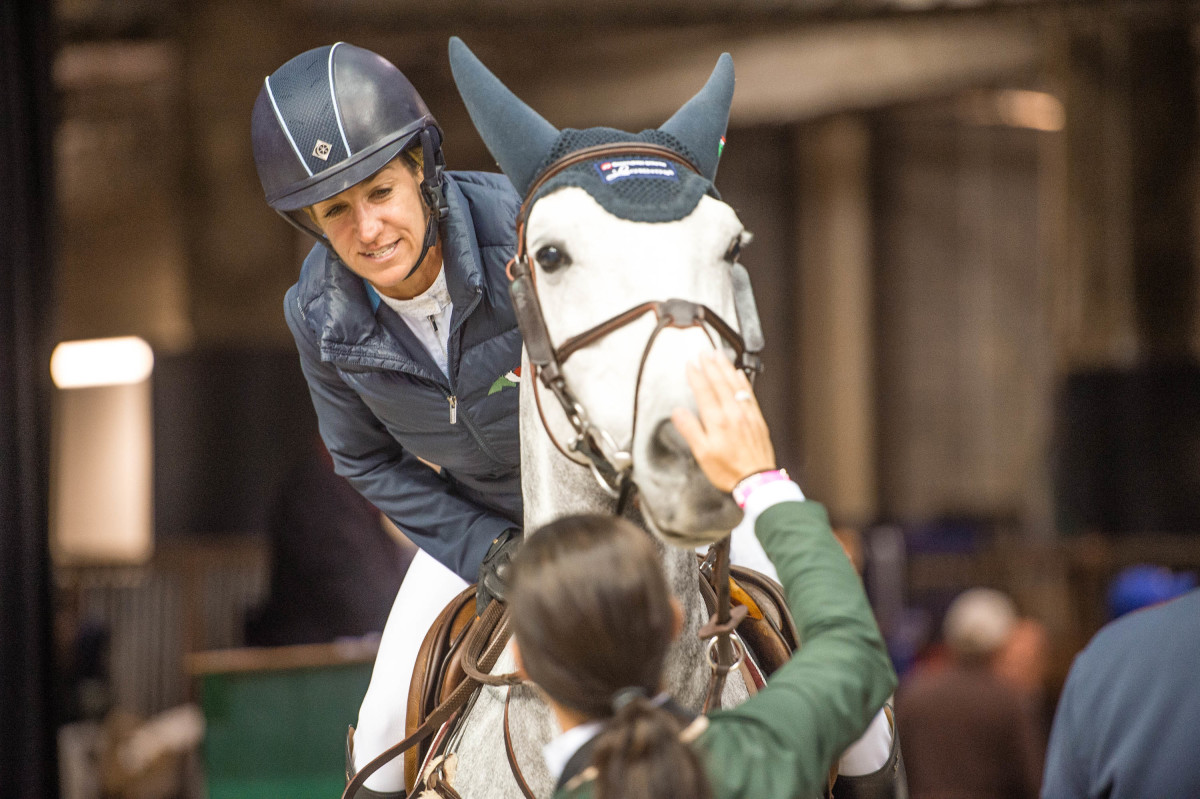
What qualities do you look for in a jumper?
Oftentimes, it’s an instinct. Obviously you’re looking for good technique. You want him quick in front, you want him to have a good back end, you want him to be athletic, you want him to have a good canter. More and more I’m finding you really do want horses that have a good brain and are rideable because the courses are getting more and more technical. Twenty years ago you had 15 strides between fences and you had a time allowed of 2 minutes. Now everything is so technical, so quick. You have to be able to manage them, so the rideability of a horse is really, really so important now. I definitely wouldn’t have said that 25 years ago when I was riding horses off the racetrack that we rooting and going sideways because you could get them sorted and if they jumped—fine. Now, it’s a little bit trickier than that. Rideability, technique, bravery. I’m sucker for a really cute face. Overall, I just normally have an instinct that says, I like this one.
Can you describe the similarities and differences between your training philosophy and partner Nick Skelton’s?
They were very different in that Nick came from a different world. He’s from England, he’s old school where you pretty much taught yourself. He trained with Ted Edgar who is quite famous for many reasons. But on the whole, they kind of just do everything on their own. Over here we’re a training-based country. I have students, and I have a whole entourage of people that go along with [me] and he had three horses and that was it. So his whole world revolved around getting those horses to the shows that he wanted and peaking. So as far as business goes, it’s taken a bit of time. I’ve learned to scale back a little bit and he’s learned to broaden his scope of what he does.
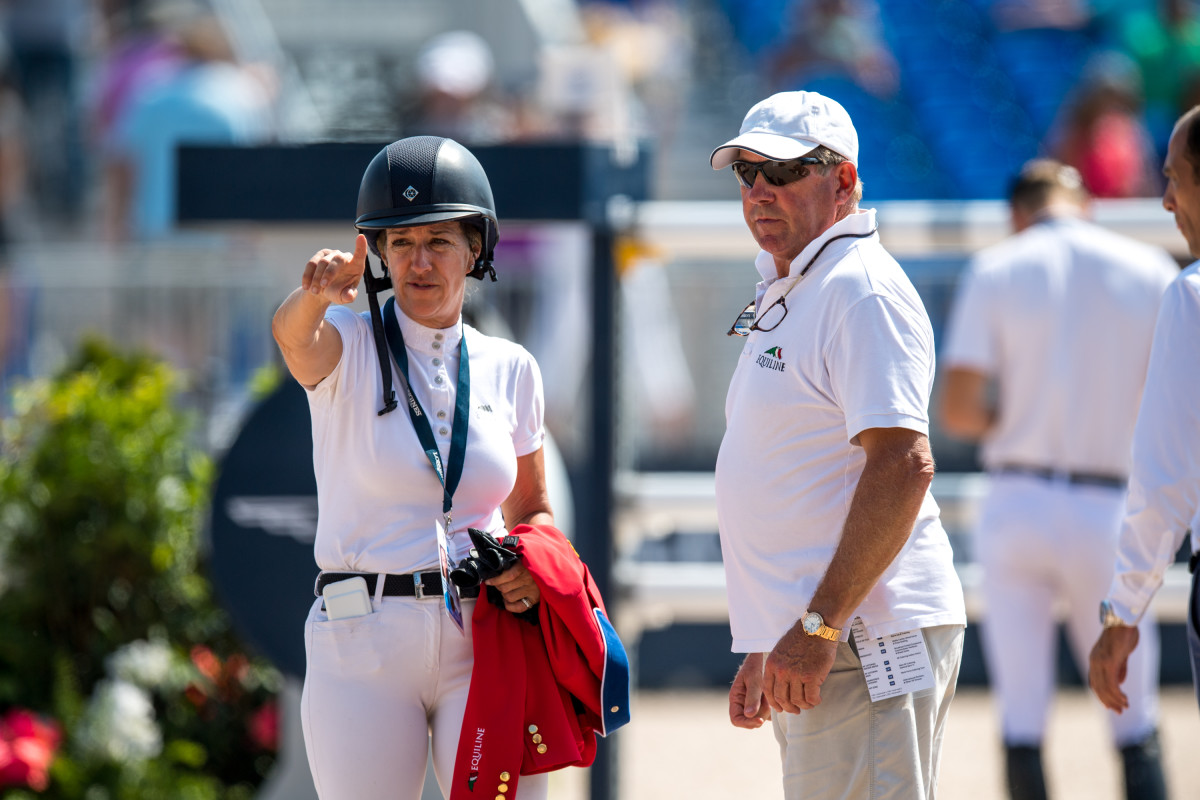
Training the horses, I would say overall, we are similar. He’s a very light, soft rider. He would be more aligned with an American style of rider versus say the German style of riding. He has a very unique style that I think no one in the world has ridden or will ride like he does. He just has this incredible way with horses. I think he’s probably taken a lot of what we do and I’ve certainly taken a lot of what he does and make it work.
What do you think makes a good horseman?
That’s a pretty broad question but I think a good horseman is someone who really studies the horse and that’s not just the riding end of it. That’s knowing from top to bottom. I think it’s being a student of the horse and really knowing a lot about them and knowing their flaws and their strengths and being able to bring out their strengths and try to train away the flaws. It’s looking out for their well-being without spoiling them. It’s having the wisdom to know when enough is enough but also to know when you can push that little bit more. It’s also having the wisdom to know that you don’t always do it right. I think that’s the one thing about our sport and horses in general—it’s a constant learning process because it’s trial and error. They cannot tell us in words what’s going on, so we have to learn their sign language. So, I think a good horseman is anyone who can sympathetically and empathetically work with the animal and learn as much as they can.
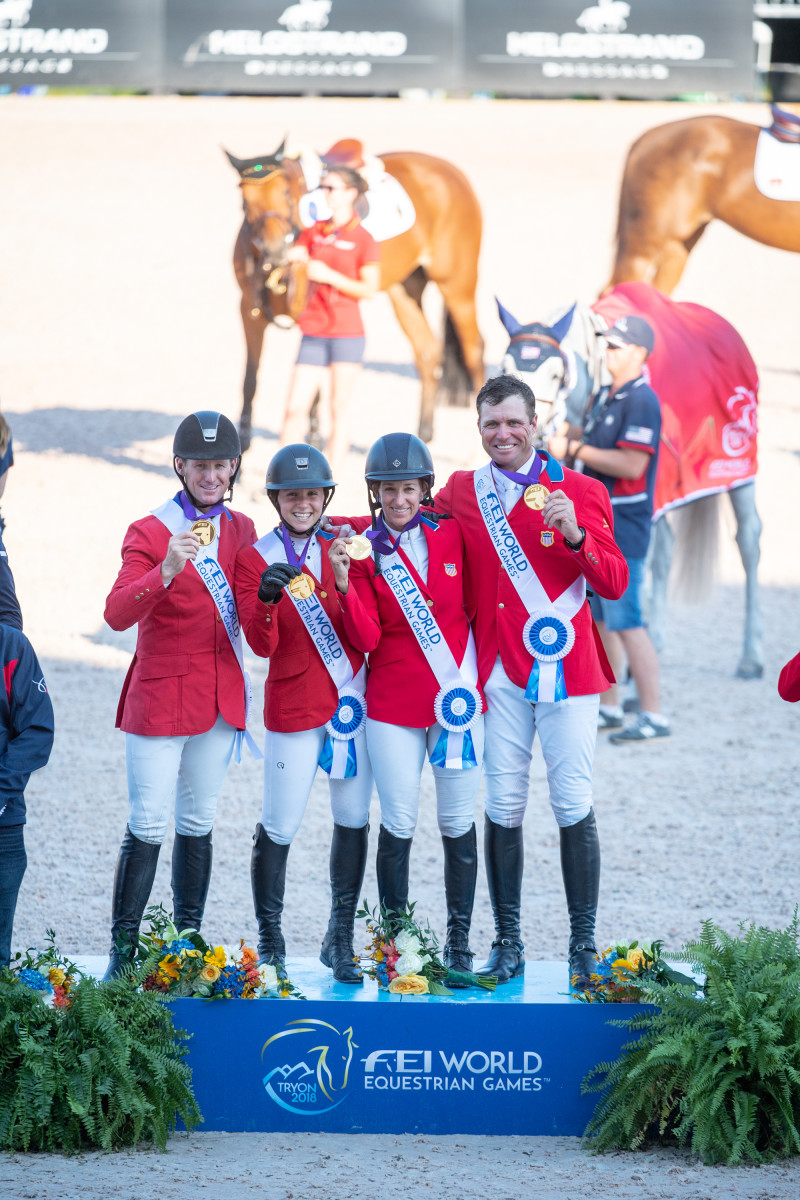
Also, in the end, really great horsemen are the ones who choose to pass it on to the next generation which I think is so important, particularly in today’s world with the electronics and internet that are so intimidating for some of our great older horsemen. Back 20, 30, 40 years ago they wrote books. And now no one writes books anymore. I’ve been thinking about it recently, I feel like before it’s too late, we need to get ahold of a lot of these people that have been in this industry that are amazing and record what it is they have to say. If we get it on a podcast or if we get it in print the younger generation will read it or listen to it. It’s important to get ahold the vast amounts of knowledge out there.
See also: Laura Kraut: Find Your Victories in the Process
Listen to the full interview here.
About the Practical Horseman Podcast
The Practical Horseman podcast, which runs every other Friday, features conversations with respected riders, industry leaders and horse-care experts to inform, educate and inspire. It is co-hosted by Practical Horseman editors Sandy Oliynyk and Jocelyn Pierce. Upcoming episodes are with World Equestrian Games team gold medalist Adrienne Sternlicht and top hunter and equitation trainer Frank Madden. Find the podcast at iTunes, Stitcher and Soundcloud or wherever you get your podcasts.






